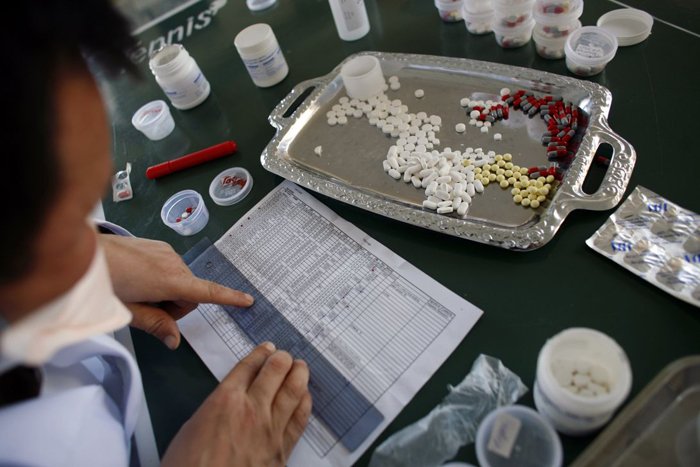Fatal confusion: The fight against fake medicines veers off course

Jan 04, 2011
Fake medicines, which make false claims about what they contain or where they are from, represent a genuine problem. But in 2010, a number of initiatives that claim to deal with this problem have gone off course, by taking a trade approach to what is first and foremost a public health problem. So instead of actually dealing with the danger of fake and substandard drugs, they end up punishing access to quality generic medicines.
When Kenya, for example, adopted a law to fight fakes, it chose a definition of the word ‘counterfeit’ so broad that the law risks including legally-produced, quality generic medicines. The net is being cast far too wide: the law could seriously endanger people’s health, as MSF and other treatment providers depend on a reliable flow of generic medicines to treat people in their programmes. In April 2010, Kenyan public health activists won a first legal battle to challenge the constitutionality of the law, which is now under judicial review. But similar legislation is proceeding in Uganda and other East African countries.
Further, a group of rich countries finalised in 2010 the Anti-Counterfeiting Trade Agreement (ACTA) which they want developing countries to sign on to. But hiding behind an agreement that claims to be about protecting the public from fakes is in fact a treaty that seeks to enforce intellectual property: ACTA will inhibit the production and distribution of affordable generic medicines by excessively punishing intellectual property violations, strengthening monopolies on medicines and enhancing the rights of brand-name pharmaceutical companies.
The problem of substandard and fake drugs must be addressed, but not by harming access to generic medicines. What is needed is a clear definition of what fake medicines are so that the problem is not confused with trade issues, as well as measures that address the actual public health problem. And the far larger problem of substandard medicines must get greater attention.
Michelle Childs, Director of Policy/Advocacy, MSF Campaign for Access to Essential Medicines “Relying on measures that only enforce intellectual property is a poor framework for protecting public health. This approach has skewed the response to the fake medicines, and has led to inappropriate and harmful solutions being promoted that fail to ensure patients have access to safe, quality and effective medicines and create barriers to access to medicines.”
When Kenya, for example, adopted a law to fight fakes, it chose a definition of the word ‘counterfeit’ so broad that the law risks including legally-produced, quality generic medicines. The net is being cast far too wide: the law could seriously endanger people’s health, as MSF and other treatment providers depend on a reliable flow of generic medicines to treat people in their programmes. In April 2010, Kenyan public health activists won a first legal battle to challenge the constitutionality of the law, which is now under judicial review. But similar legislation is proceeding in Uganda and other East African countries.
Further, a group of rich countries finalised in 2010 the Anti-Counterfeiting Trade Agreement (ACTA) which they want developing countries to sign on to. But hiding behind an agreement that claims to be about protecting the public from fakes is in fact a treaty that seeks to enforce intellectual property: ACTA will inhibit the production and distribution of affordable generic medicines by excessively punishing intellectual property violations, strengthening monopolies on medicines and enhancing the rights of brand-name pharmaceutical companies.
The problem of substandard and fake drugs must be addressed, but not by harming access to generic medicines. What is needed is a clear definition of what fake medicines are so that the problem is not confused with trade issues, as well as measures that address the actual public health problem. And the far larger problem of substandard medicines must get greater attention.
Michelle Childs, Director of Policy/Advocacy, MSF Campaign for Access to Essential Medicines “Relying on measures that only enforce intellectual property is a poor framework for protecting public health. This approach has skewed the response to the fake medicines, and has led to inappropriate and harmful solutions being promoted that fail to ensure patients have access to safe, quality and effective medicines and create barriers to access to medicines.”





Leave a Comment